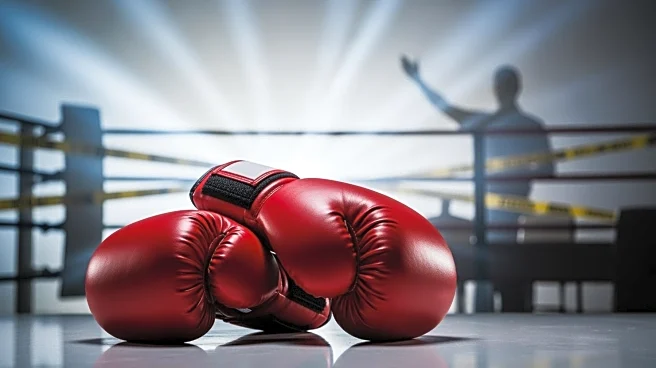What's Happening?
UFC Hall of Famer Wanderlei Silva participated in a boxing match against former world champion Acelino Freitas at the Spaten Fight Night 2 event in São Paulo, Brazil. Silva earned $1.2 million for the fight,
as reported by his teammate, former UFC heavyweight champion Fabricio Werdum. The match ended in controversy when Silva was disqualified in the fourth round for multiple violations, including an intentional headbutt. Following the disqualification, a massive brawl erupted in the ring involving both fighters' teams, during which a member of Freitas's team knocked Silva out cold.
Why It's Important?
The incident highlights the ongoing challenges in maintaining sportsmanship and discipline in combat sports. The disqualification and subsequent brawl could impact Silva's reputation and future opportunities in boxing. Financially, Silva's significant earnings from the match underscore the lucrative nature of crossover events between MMA and boxing, attracting fighters from different disciplines. The event also raises questions about the enforcement of rules and the role of officials in preventing such altercations, which can tarnish the sport's image and deter sponsors and fans.
What's Next?
The aftermath of the brawl may lead to disciplinary actions from boxing authorities against Silva and possibly other involved parties. There could be increased scrutiny on event organizers to ensure better security and adherence to rules in future matches. Additionally, Silva's future in boxing may be uncertain, as promoters and sponsors evaluate the risks and benefits of associating with him. The incident may also prompt discussions within the combat sports community about improving regulations and penalties to prevent similar occurrences.
Beyond the Headlines
The brawl at the Spaten Fight Night 2 event reflects broader issues in combat sports, such as the blending of different fighting styles and the challenges of adapting to new rule sets. It also highlights the cultural and ethical considerations of promoting fights that prioritize entertainment over sportsmanship. The incident may influence public perception of combat sports, potentially affecting viewership and participation rates. Long-term, it could lead to reforms aimed at enhancing the integrity and professionalism of the sport.










